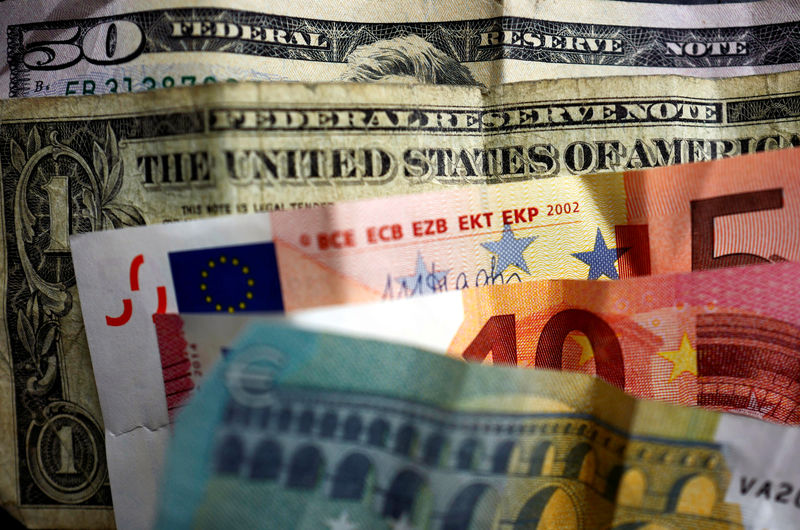By Peter Nurse
Investing.com - The dollar was lower in early European trade Wednesday, weighed by doubts about a prompt U.S. economic recovery amid continued political wrangling over the latest U.S. relief plan from the coronavirus pandemic.
At 3:00 AM ET (0700 GMT), the Dollar Index, which tracks the greenback against a basket of six other currencies, was down 0.3% at 93.067, not far removed from the two-year low of 92.523 seen late last week.
Elsewhere, USD/JPY was down 0.1% at 105.64, GBP/USD was up 0.2% at 1.3094, while EUR/USD was up 0.2% at 1.1823.
A hardening perception that the U.S. economic rebound is lagging Europe, particularly given how the two regions have responded to the Covid-19 outbreak, has weighed heavily on the dollar in favour of the buoyant single currency.
This perception has been given more weight of late by the stalemate in Congress over the proposed new stimulus to boost the hard-hit U.S. economy, while the European Union was recently able to pass a 750-billion-euro package, including the principle of collective debt.
Although White House negotiators vowed on Tuesday to work “around the clock” to reach a consensus by the end of this week, U.S. Treasury Secretary Steven Mnuchin warned that “we’re not going anywhere close” to the $3.4 trillion price tag sought by Democrats.
The need for more aid is likely to be illustrated with private U.S. payrolls data, due at 8:15 AM ET (1215 GMT), likely to show a slowdown in hiring as the second wave of the coronavirus resulted in various states rolling back their reopening plans.
The weekly initial jobless claims data has shown a slight increase in the number of people claiming unemployment benefits over the last couple of weeks, and this could translate into a very disappointing official payrolls release on Friday.
ING looks for even more losses for the dollar against the euro in the weeks ahead.
“Of note now is the fact that the recent EUR/USD rally has not been backed by equity flows. Buy-side surveys suggest that: i) investors are still heavily overweight U.S. equities, especially tech stocks, and ii) are minded to rotate into eurozone and see the euro as cheap,” analysts at ING said, in a research note.
“If that rotation comes to pass …. then EUR/USD may be a 1.25 story after all,” ING added.
